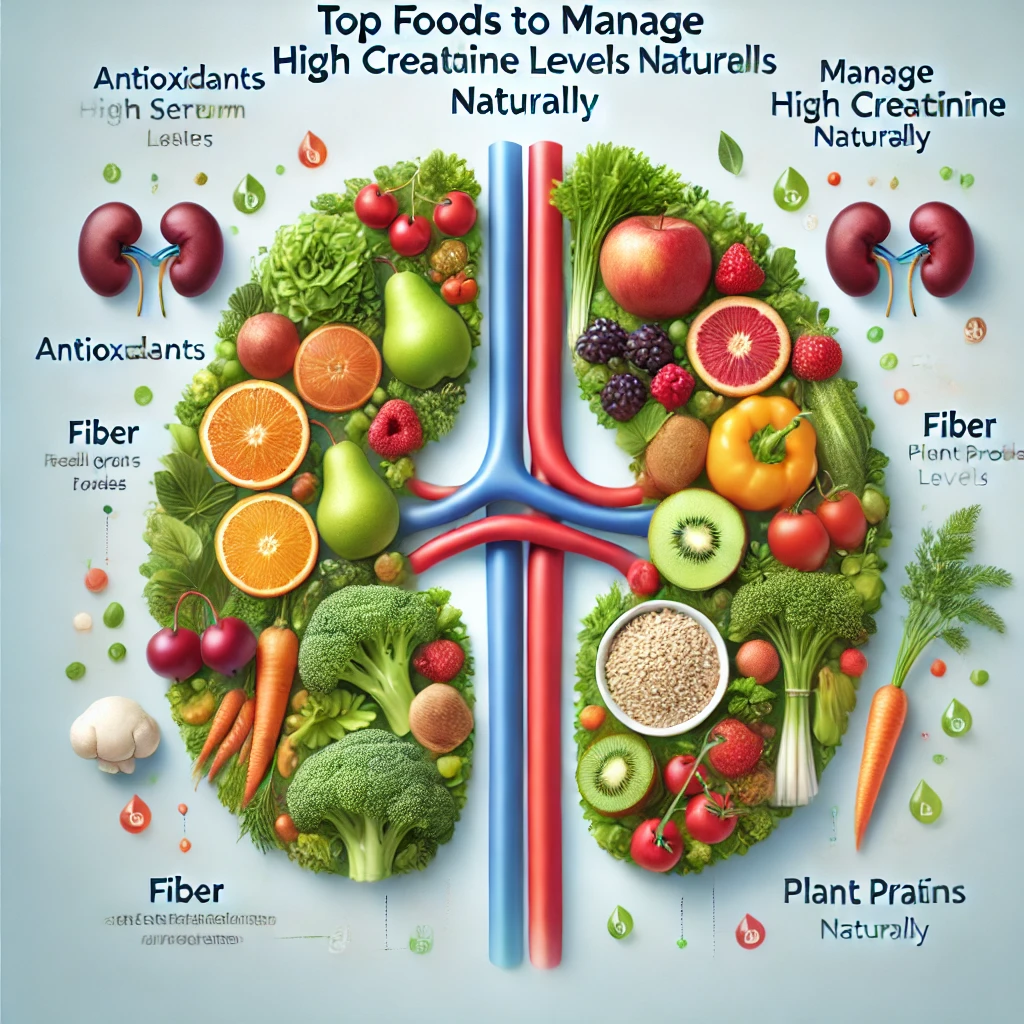
Top Foods to Manage High Serum Creatinine Levels Naturally: Essential Diet Tips for Kidney Health
Understanding Serum Creatinine and the Role of Food Consumption
Serum creatinine levels serve as a key indicator of kidney function. When our kidneys work effectively, they filter creatinine – a waste product formed by muscle metabolism – out of our blood and excrete it through urine. However, if serum creatinine levels are elevated, it can signal issues with kidney function. Diet and food consumption play an essential role in managing serum creatinine levels, especially for individuals with kidney conditions or those at risk. Here’s an in-depth look at serum creatinine and how dietary choices can help manage its levels.

1. What Is Serum Creatinine?
Serum creatinine is the amount of creatinine in the bloodstream. Muscles naturally produce creatinine as they use energy, and this compound is filtered from the blood by the kidneys. Normal serum creatinine levels vary slightly by age, gender, and muscle mass:
- For men, the typical range is 0.74 to 1.35 mg/dL.
- For women, the range is about 0.59 to 1.04 mg/dL.
- Higher levels can indicate that the kidneys may not be filtering waste effectively.
2. Factors Affecting Serum Creatinine Levels
- Muscle Mass and Physical Activity: Since creatinine is produced by muscles, those with larger muscle mass or who engage in strenuous physical activity may naturally have higher creatinine levels.
- Diet: High-protein diets or certain types of foods, like red meat, can temporarily increase serum creatinine due to higher breakdown of creatine in muscle tissue.
- Medications and Supplements: Certain drugs and supplements can affect creatinine levels. For instance, creatine supplements and non-steroidal anti-inflammatory drugs (NSAIDs) can lead to elevated levels.
3. Foods to Manage Serum Creatinine Levels
For those aiming to maintain healthy creatinine levels or manage mild elevations, dietary choices can make a substantial impact. Here’s a breakdown of beneficial and avoidable foods:
Foods to Limit or Avoid
- Red Meat: High in creatine, which turns into creatinine when broken down, red meat can increase serum creatinine levels. Replace with moderate portions of chicken or fish if animal protein is needed.
- High-Protein Foods: High protein intake may overload the kidneys. Consider limiting high-protein foods like dairy products, eggs, and large portions of poultry.
- Processed Foods: These often contain high levels of sodium, which can increase blood pressure and negatively affect kidney function over time.
Beneficial Foods for Kidney and Serum Creatinine Management
- Plant-Based Proteins: Opt for plant-based proteins like beans, lentils, chickpeas, and tofu, which are gentler on the kidneys compared to animal proteins.
- High-Fiber Foods: Fiber has shown to help reduce the load on kidneys by aiding the excretion of waste. Include whole grains, fruits, and vegetables like berries, apples, carrots, and leafy greens in your diet.
- Foods Rich in Antioxidants: Antioxidants help reduce inflammation and oxidative stress in the kidneys. Blueberries, cranberries, grapes, and red bell peppers are excellent sources.
- Healthy Fats: Opt for unsaturated fats like olive oil, avocados, and seeds. These fats do not impact kidney function negatively, unlike saturated fats found in fatty meats and fried foods.
4. Hydration and Fluid Intake
Staying hydrated is crucial for healthy kidney function as it helps kidneys filter out creatinine and other wastes. However, individuals with advanced kidney disease may need to monitor fluid intake closely to avoid strain on the kidneys. Consulting with a healthcare provider on the right amount of fluid intake is ideal.
5. Herbal and Natural Remedies
- Chamomile Tea: Chamomile has been linked to reducing serum creatinine levels in some studies, as it may aid in the excretion of waste products.
- Cinnamon and Turmeric: Both these spices have anti-inflammatory and antioxidant properties that can support kidney health.
- Stinging Nettle: This herb is traditionally used to help with kidney function and may aid in reducing creatinine levels.
6. Lifestyle Tips for Managing Serum Creatinine
- Regular Exercise: Gentle exercises like walking, cycling, or yoga support muscle health without excessive creatinine production. Avoid strenuous workouts if your serum creatinine is already high.
- Avoid Overuse of NSAIDs: Non-steroidal anti-inflammatory drugs can impact kidney health when used excessively. Consult a doctor before using these drugs frequently.
- Routine Checkups: If you are managing chronic kidney disease or high serum creatinine levels, regular blood tests to monitor kidney function can provide insights into how lifestyle changes are impacting your health.
7. When to Consult a Doctor
If serum creatinine levels remain elevated despite dietary and lifestyle changes, it’s essential to consult a healthcare provider. They can help determine if there is an underlying condition, such as chronic kidney disease, that requires medical intervention.
Conclusion
Managing serum creatinine levels is crucial for kidney health and overall wellness. By understanding the role of diet, hydration, and lifestyle in managing serum creatinine, individuals can make informed choices to support kidney function. Emphasizing plant-based proteins, antioxidant-rich foods, and adequate hydration, while limiting animal proteins and sodium, can contribute to healthier serum creatinine levels and long-term kidney health.


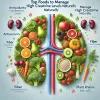

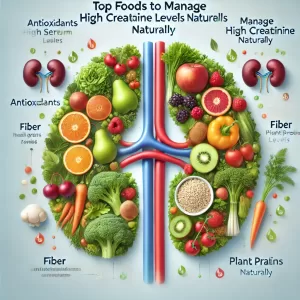
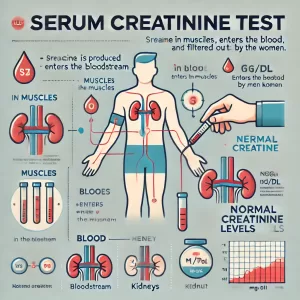
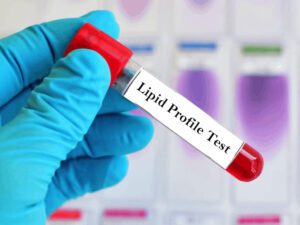

Add comment